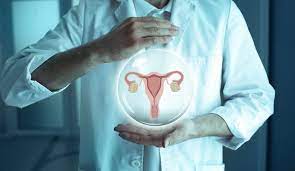Embryology

Embryology
Embryology is the study of embryo development. This includes the developmental process of a single-cell embryo to a baby. Embryology usually refers to the prenatal development of a foetus.Embryology is a branch of science that is related to the formation, growth, and development of embryo. It deals with the prenatal stage of development beginning from formation of gametes, fertilization, formation of zygote, development of embryo and fetus to the birth of a new individual. Two basic processes involved are growth and differentiation. These lead to formation of various tissues and organs in body specialized to perform specific functions. Neuroembryology is related to the development of central nervous system (brain and spinal cord) and peripheral nervous system (spinal, cranial, and autonomic nerves) in the body. These tissues develop from neural tube and neural crest cells. In this chapter we have described the origin and various stages of development of a multicellular, highly complex, and specialized nervous system from a single-celled zygote.
Embryology is an important research area to know about the impact of mutation and the progression of genetic disorders. An important aspect of embryology is Stem Cell Research.
Intrauterine insemination is a relatively simple and safe procedure, and the risk of serious complications is low. Risks include:
- Infection. There's a slight risk of developing an infection as a result of the procedure.
- Spotting. Sometimes the process of placing the catheter in the uterus causes a small amount of vaginal bleeding. This doesn't usually have an effect on the chance of pregnancy.
- Multiple pregnancy. IUI itself isn't associated with an increased risk of a multiple pregnancy — twins, triplets or more. But, when coordinated with ovulation-inducing medications, the risk of a multiple pregnancy increases significantly. A multiple pregnancy has higher risks than a single pregnancy does, including early labor and low birth weight.
Embryogenesis is the process by which an embryo develops into a foetus. It begins when an ovum and sperm meet and fertilization occurs. The fertilization results in the formation of a zygote. The zygote divides mitotically multiple times without any significant growth and cellular differentiation, leading to the development of an embryo.
It is a highly precise and complex process, wherein a single cell differentiates and develops into a multicellular human being. A continuous process begins when an oocyte (ovum) is fertilized by a sperm to form a zygote which differentiates into a definitive organ system and thereafter into their early functional stage.
The mechanisms of Transformation include- cell-division, cell migration, growth, cell differentiation, apoptosis, and cell rearrangement.
A better understanding of embryology helps us in preparing healthcare strategies :
- Therapeutic procedures for infertility
- Prenatal diagnosis and surgical treatments
- Mechanisms to prevent birth defects
Human gestation lasts an average of 266 days (38 weeks, 9 months) and is divided into 3-month intervals called trimesters.
1st trimester (1st 3 months: Week 1 – 12) — Pre embryonic and embryonic development stress, drugs and nutritional deficiencies are the most common symptoms during this stage. The “morning sickness” may be nature’s way of avoiding harmful food products getting consumed by the mother, which can have a damaging effect on the embryo, such as raw cabbage, potatoes, coffee, overcooked meat, etc.
2nd trimester (2nd 3 months: Week 13 – 24) — The foetal development starts and most of the organs get developed.
3rd trimester (3rd 3 months: Week 25 – birth) — In the third trimester, the baby continues to grow. The baby shows various movements like stretching, kicking, etc. During thirty weeks there is a huge development in the baby’s sense organs, fingernails are visible, bones get hardened, formations of red blood cells (RBC) in the bone marrow and finally have shed all the lanugo.
Book Your Free Consultation Now
OTHER TREATMENTS

Cryoperservation
Patients who undergo in vitro fertilisation (IVF) may produce several eggs

Reproductive Surgery
Reproductive surgery involves surgery in the field of reproductive medicine.

Infertility Assessment Male
Many infertile couples have more than one cause of infertility, so it's likely you will both need to see a doctor.
